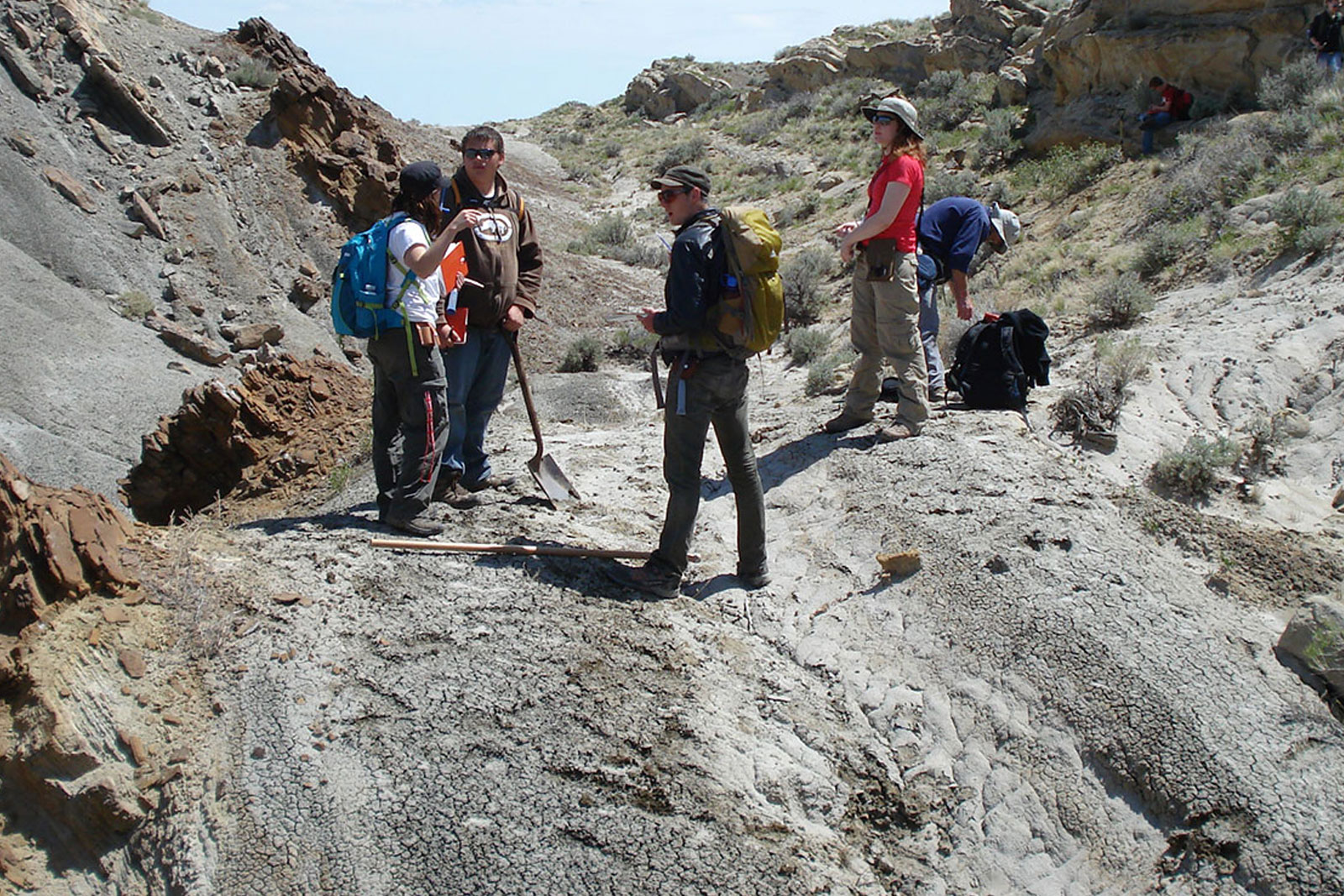
The Department of Earth & Atmospheric Sciences offers MS and PhD degrees in Earth and Atmospheric Sciences. Students can choose from a broad collection of sub-disciplines that generally fall under one or more of the three branches of geosciences: earth, air, and water.
Researchers in the Department of Earth & Atmospheric Sciences examine a wide variety of issues relevant to Earth systems and Earth system history. The primary emphasis is on Earth's atmospheric and hydrological systems and the interaction of these systems with the sedimentary cycle.
Recent graduates have performed research in physical and chemical hydrogeology, hydrogeologic modeling, surficial processes, geomorphology, sedimentology, vertebrate paleontology, micropaleontology, geochemistry, petrology, structure and tectonics, climate change, land/surface atmosphere interactions, physical climatology and meteorology, severe storms, snow and ice studies, surface energy balance modeling, and synoptic meteorology.
Departmental researchers have obtained large grants supporting multidisciplinary research efforts in areas as disparate as Antarctica and the Nebraska Sand Hills. They encourage collaborative work with the University of Nebraska State Museum, the Center for Advanced Land Management and Information Technologies, the School of Natural Resources, and other related University of Nebraska-Lincoln departments.
Recent graduates are employed as faculty by research universities and liberal arts colleges, and as weather forecasters, petroleum geologists, consulting geologists, and scientific staff by various governmental agencies.
Courses
Graduate courses are listed as 800 and higher.
Specializations
Geology
Students must complete an MS or PhD in Earth and Atmospheric Sciences. MS students must complete 20-24 hours of regular course work selected from the GEOL and GEOS graduate-level course lists and a thesis. PhD students must complete at least 32 hours of regular course work (12 after completion of the MS degree) selected from the GEOL and GEOS graduate-level course lists and a dissertation.
Meteorology/Climatology
Students must complete an MS or PhD in Earth and Atmospheric Sciences. MS students must complete 20-24 hours of regular course work selected from the Meteorology-Climatology course list and a thesis. PhD students must complete at least 32 hours of regular course work (12 after completion of the MS degree) selected from the METR and GEOS graduate course lists and a dissertation.Hydrogeology
Students must complete an MS or PhD in Earth and Atmospheric Sciences. MS students must complete 20-24 hours of regular course work and a thesis. At least 14 hours must be selected from the Hydrogeology course list and at least 10 must be core courses in the Hydrogeology curriculum. PhD students must complete at least 32 hours of regular course work (12 after completion of the MS degree) with 16 hours selected from the Hydrogeology course list and a dissertation. Core courses include GEOL818, GEOL870, GEOL872, GEOL888, GEOL889, GEOL985, GEOL986, GEOL987, and GEOL988. Additional courses are offered jointly through other departments.
Geoscience Education
Students must complete an MS or PhD in Earth and Atmospheric Sciences. Students who already completed an undergraduate and/or Master’s degree in Geoscience (according to National Research Council, this includes: Geology, Earth Science, Meteorology, Atmospheric Science, Climate Science, Ocean Science, Marine Science, and Environmental Science) or closely related field are eligible to pursue this interdisciplinary specialization. MS students must complete 20-24 hours of regular course work selected from the Geoscience, Educational Psychology, Teaching and Learning, and Psychology graduate-level course list. PhD students must complete at least 32 hours of regular course work (12 after completion of the MS degree) selected from the aforementioned graduate-level course list.
Great Plains Studies
Students are admitted to the specialization by the Great Plains Studies Specialization Advisory Committee after admission to the Department of Earth and Atmospheric Sciences. MS students must take nine credit hours of Great Plains Studies courses outside the student's major department. PhD students must take 15 credit hours of Great Plains Studies courses outside the student's major department. The student's thesis or dissertation must be relevant to the Great Plains and at least one member of the Examining or Supervisory Committee must be a Fellow of the Center for Great Plains Studies.
Water Resources Planning and Management
Each MS student must complete nine hours of water resources-related courses from departments outside the student's major field and approved by the Water Resources Advisory Committee as well as a thesis oriented toward water resources planning and management.
Interdisciplinary Graduate Programs
The multi-disciplinary environment of the Department encourages interactions with other UNL units including the Departments of Biological Sciences, Chemistry, Mathematics, Mechanical Engineering, Biological Systems Engineering, Civil Engineering, School of Natural Resources, State Conservation and Survey Division, UNL State Museum, Center for Advanced Land Management and Information Technologies (CALMIT), and The Water Center.
Admissions
Prerequisites
Applicants must have a baccalaureate or graduate degree to gain admission in full standing. Applicants lacking these requirements may be granted provisional status until the deficiencies are cleared.
As of Fall 2020 Earth and Atmospheric Sciences does not require GRE scores.
Although the department has no formal minimum GPA score requirements, offers of financial support, for example Graduate Teaching and Research Assistantships, tend to go to students with the highest academic credentials.
A major criterion for acceptance in our program is that an EAS faculty member indicates that they are willing to serve as your advisor. Applicants are advised to contact relevant faculty to discuss openings in their research groups. A list of EAS faculty is available here.
Application Deadlines
- March 1 for Fall
- Sept. 1 for Spring
- Feb. 1 for Summer
- Jan. 15 to assure consideration for financial support for Fall Semester